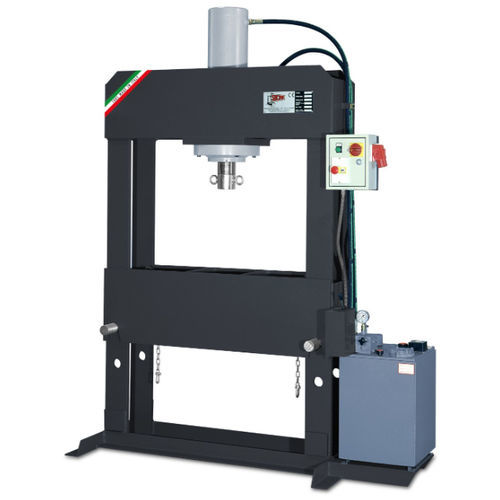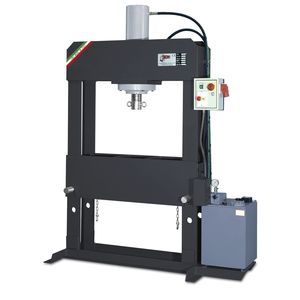
- Company
- Products
- Catalogs
- News & Trends
- Exhibitions
Hydraulic press bendingstraighteningcutting
Add to favorites
Compare this product
Characteristics
- Operation
- hydraulic
- Function
- bending, straightening, cutting, assembly
- Other characteristics
- continuous
- Applications
- for the automotive industry, for the aeronautical industry
Description
Hydraulic workshop presses are machines that use fluid pressure to exert force on a solid material to deform, cut, bend or assemble it.
The operating principle of a hydraulic press is based on Pascal's law, which states that the pressure exerted on an equilibrium fluid is transmitted equally to all points of the fluid and to the walls of the container that contains it.
Hydraulic workshop presses have several advantages compared to other types of presses, such as mechanical or pneumatic ones. Among the advantages, we can mention:
• Obtain a high force with a small thrust, thanks to the ratio between the areas of the two cylinders that make up the hydraulic press.
• Adjust the force and speed of the hydraulic press by varying the fluid pressure or pump flow.
• Have a constant and uniform force over the entire surface of the material, without jolts or vibrations.
• The possibility of adapting the hydraulic press to different shapes and sizes of materials, thanks to the flexibility of the fluid and the variety of molds and tools available.
Hydraulic presses are widely used in mechanical workshops to carry out various processes, such as bending sheet metal, dismantling bearings, carrying out repairs on engines or straightening materials. Since they are machines subject to continuous stress, it is necessary that their metal structure and the quality of the hydraulic and electrical circuits are able to cope with the work to be carried out. This is why at Sicmi we produce high quality hydraulic workshop presses, with superior technical and performance characteristics. All the hydraulic workshop presses produced by the Sicmi company are made entirely in Italy,
VIDEO
Catalogs
No catalogs are available for this product.
See all of SICMI SRL‘s catalogsRelated Searches
- Industrial press
- Hydraulic press
- Forming press
- Automatic press
- Assembly press
- Electric press
- Vertical press
- Manually-controlled press
- Ram press
- Punching press
- Cutting press
- Process press
- Stamping press
- Frame press
- Production press
- Drilling press
- PLC-controlled press
- Bending press
- Cambering press
- Press for the automotive industry
*Prices are pre-tax. They exclude delivery charges and customs duties and do not include additional charges for installation or activation options. Prices are indicative only and may vary by country, with changes to the cost of raw materials and exchange rates.












